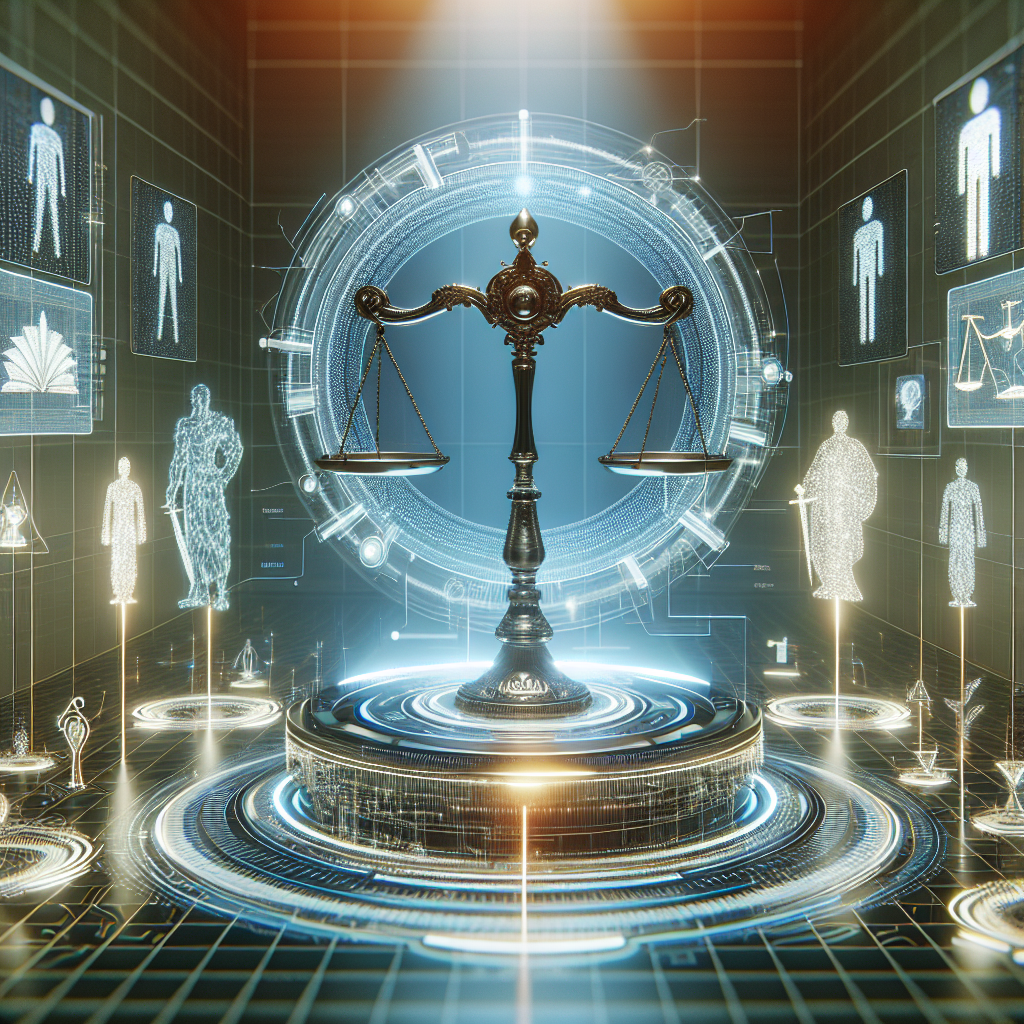The Rise of AI Judges: Implications for the Legal System
Artificial intelligence (AI) has been making significant strides in various industries, from healthcare to finance to transportation. Now, AI is also making its way into the legal system, with the emergence of AI judges. These AI judges are software programs that use algorithms to analyze and interpret legal data, make decisions, and even sentence defendants. While the use of AI judges raises many questions and concerns, it also presents several potential benefits for the legal system.
One of the main advantages of AI judges is their ability to process and analyze vast amounts of legal information quickly and efficiently. Human judges can only handle a limited number of cases at a time, but AI judges can review and analyze thousands of cases in a matter of seconds. This efficiency can help reduce the backlog of cases in the court system and expedite the delivery of justice.
AI judges also have the potential to eliminate bias and prejudice in the legal system. Human judges are influenced by their own personal beliefs, experiences, and emotions, which can sometimes lead to unfair or inconsistent judgments. AI judges, on the other hand, make decisions based on data and algorithms, which are designed to be objective and impartial. This can help ensure that all individuals are treated fairly and equally under the law.
However, the use of AI judges also raises several concerns. One of the main concerns is the lack of transparency in how AI judges make decisions. The algorithms used by AI judges are often complex and difficult to understand, making it challenging for lawyers, defendants, and the public to know how a decision was reached. This lack of transparency can undermine the trust and legitimacy of the legal system.
Another concern is the potential for AI judges to perpetuate and even exacerbate existing biases in the legal system. The algorithms used by AI judges are trained on historical legal data, which may contain biases against certain groups of people. If these biases are not addressed and corrected, AI judges could end up making decisions that are discriminatory or unfair.
Despite these concerns, the use of AI judges in the legal system is likely to increase in the coming years. As technology continues to advance and become more sophisticated, AI judges will become more accurate and reliable in their decision-making. This could lead to greater efficiency, consistency, and fairness in the legal system.
FAQs
Q: How do AI judges work?
A: AI judges use algorithms to analyze legal data, such as court cases, laws, and precedents, to make decisions and judgments. These algorithms are trained on large datasets of legal information to learn patterns and relationships that can help inform their decisions.
Q: Can AI judges replace human judges?
A: While AI judges have the potential to assist human judges in their decision-making process, it is unlikely that they will completely replace human judges. Human judges bring a level of empathy, intuition, and understanding that AI judges currently lack. AI judges are more likely to complement human judges rather than replace them entirely.
Q: Are AI judges biased?
A: AI judges can be biased if the algorithms used to train them are based on biased or discriminatory data. It is essential for developers to ensure that AI judges are trained on unbiased and diverse datasets to minimize the risk of bias in their decision-making.
Q: How can we ensure that AI judges are fair and impartial?
A: To ensure that AI judges are fair and impartial, developers should regularly audit and test the algorithms used by AI judges to identify and correct any biases. Additionally, transparency in how AI judges make decisions is crucial to building trust and confidence in their judgments.
In conclusion, the rise of AI judges presents both opportunities and challenges for the legal system. While AI judges have the potential to improve efficiency, consistency, and fairness, they also raise concerns about transparency, bias, and accountability. It is essential for policymakers, developers, and legal professionals to work together to address these issues and ensure that AI judges are used responsibly and ethically in the legal system.

